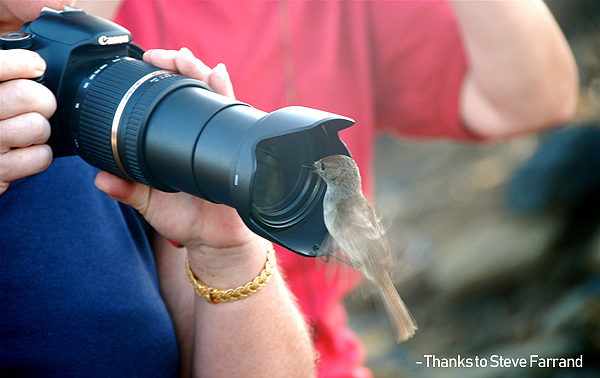 Today I assist our area’s most celebrated birder in conducting the “BBS” for our government. The Breeding Bird Survey gives me a great perspective when comparing African avifauna to the bird life of my home.
Today I assist our area’s most celebrated birder in conducting the “BBS” for our government. The Breeding Bird Survey gives me a great perspective when comparing African avifauna to the bird life of my home.
Category: Ecology
OnSafari: Wisconsin
 I was sitting in our breakfast room, the corner of the house all windowed, overlooking the lake when a red Corolla with a red canoe on top raced down our driveway and a tall lanky man with wading boots and a funny hat jumped out and ran to the edge of the lake.
I was sitting in our breakfast room, the corner of the house all windowed, overlooking the lake when a red Corolla with a red canoe on top raced down our driveway and a tall lanky man with wading boots and a funny hat jumped out and ran to the edge of the lake.
When he raised his binoculars my concern turned to relief. I walked out barefoot in my jammies into the 45F spectacularly clear morning and introduced myself, but I all I did was manage to agitate him as he muttered, “Yellow over red. No… pink over red.”
Spineless Science
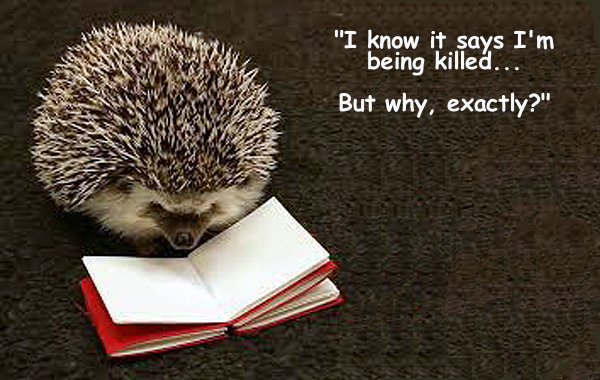 So even scientists have been coopted, now. Today in Paris most all of the most famous scientists in the world issued an 1800-page much anticipated report detailing what the rapid loss of biodiversity is doing to us:
So even scientists have been coopted, now. Today in Paris most all of the most famous scientists in the world issued an 1800-page much anticipated report detailing what the rapid loss of biodiversity is doing to us:
Killing us, essentially. By the way, what did you think about that last Game of Thrones episode? Pretty cool, isn’t it, that Alex Cora is skipping the White House meeting? Is it possible that climate change has something to do with the decline in biodiversity?
Super Tuskers
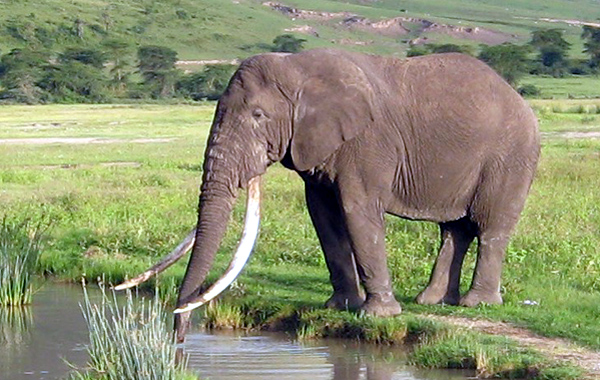 Last month one of the last known super tuskers died. The last time I saw one was in April, 2008. A “Super Tusker” is somewhat arbitrarily defined as an elephant with two tusks each at least 1½ meters long and each weighing at least 80 kilos. It was sipping water from a pool in Ngorongoro Crater.
Last month one of the last known super tuskers died. The last time I saw one was in April, 2008. A “Super Tusker” is somewhat arbitrarily defined as an elephant with two tusks each at least 1½ meters long and each weighing at least 80 kilos. It was sipping water from a pool in Ngorongoro Crater.
Looking for super tuskers isn’t just a fun hobby. Elephant survival is directly linked to the size and weight of their tusks. Unfortunately, this is also the singular characteristic that attracts poachers.
Scorpio Salutations
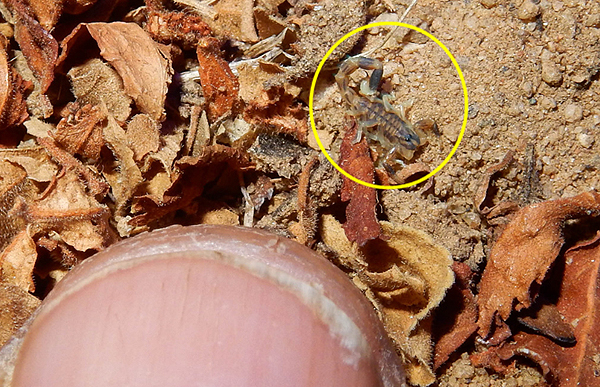 Why does a miniature scorpion in Samburu remind me of one of the world’s greatest paleontologists?
Why does a miniature scorpion in Samburu remind me of one of the world’s greatest paleontologists?
When Richard Leakey published The Sixth Extinction nearly a quarter century ago, many disparaged what they contended was just another publicity stunt in the then ongoing personal wars between paleontologists who were finally getting their air time with Oprah.
OnSafari: Real Kruger
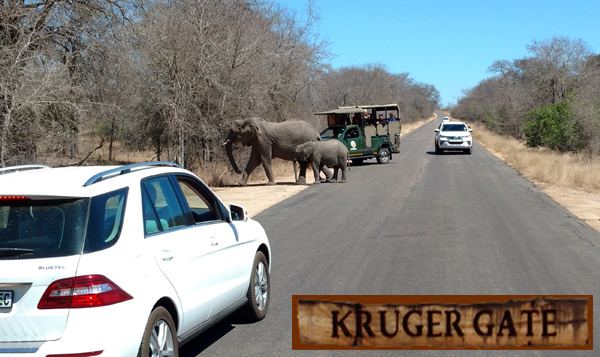 Rather than go directly from one private reserve to another, the standard MO of most upmarket safaris in South Africa, I took my group Sunday into Kruger National Park.
Rather than go directly from one private reserve to another, the standard MO of most upmarket safaris in South Africa, I took my group Sunday into Kruger National Park.
You mean many Americans on safari don’t visit Kruger National Park? One of the best managed wildernesses on earth and the oldest? That’s right. Here’s why.
OnSafari: Kingdom of Color
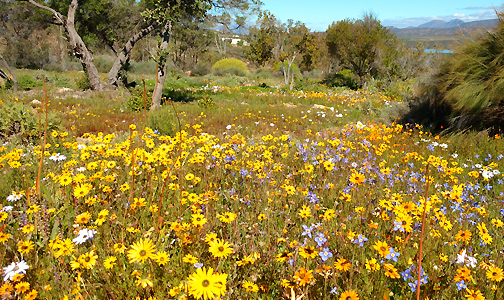 As I continue my journey through Cape’s paradise of Springtime, it becomes increasingly difficult to write instead of just show you pictures!
As I continue my journey through Cape’s paradise of Springtime, it becomes increasingly difficult to write instead of just show you pictures!
And I’m no photographer. Nothing but my old Android phone that’s now my “African phone.” Poorly focused, no sensitivity to settings, I just click away, endlessly.
OnSafari: Cape Floral Show
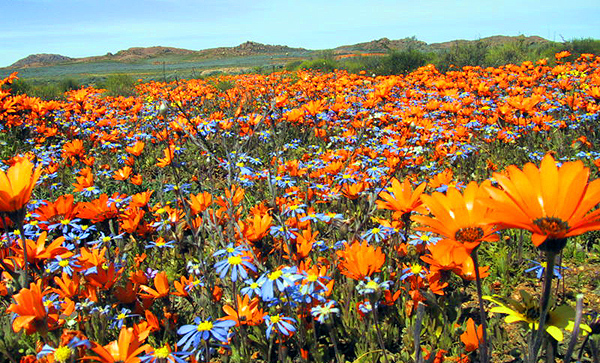 The beauty is exceptional. This is The Cape’s Spring Flower Show, probably the greatest on earth, even better than western Australia. I’m in Piketberg, about 150 miles north of Cape Town near Citrusdal and the Cederberg Mountains. Very poor internet. Will do my best. Stay tuned!
The beauty is exceptional. This is The Cape’s Spring Flower Show, probably the greatest on earth, even better than western Australia. I’m in Piketberg, about 150 miles north of Cape Town near Citrusdal and the Cederberg Mountains. Very poor internet. Will do my best. Stay tuned!
Twinkling Twain
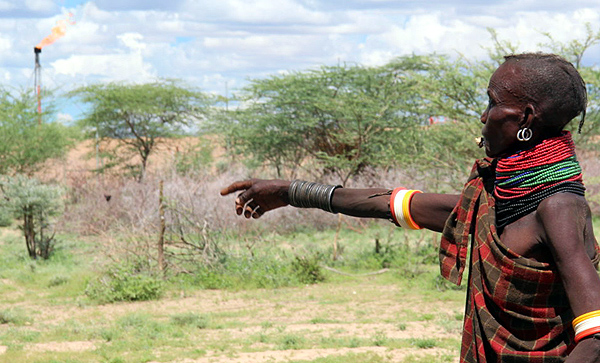 Our universe is composed of the natural world and our human imprint on it. Rarely the twain shall meet in a modern world. But from time to time they do: look at northern Kenya, today.
Our universe is composed of the natural world and our human imprint on it. Rarely the twain shall meet in a modern world. But from time to time they do: look at northern Kenya, today.
Conservationists who believe Kenya is moving too recklessly to develop oil in its northern deserts, and the neglected people who live there who stood to benefit, are today allied in opposing the development.
What a Whitley!
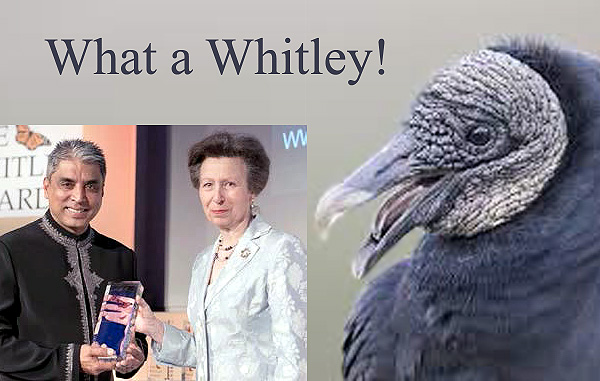 Recently on a local birdwalk with some neophytes my colleague guide and I knew that we had to find something big quick. Then as luck would have it in swept a turkey vulture and with great enthusiasm we began explaining all the marvelous things about it.
Recently on a local birdwalk with some neophytes my colleague guide and I knew that we had to find something big quick. Then as luck would have it in swept a turkey vulture and with great enthusiasm we began explaining all the marvelous things about it.
“Ugh! A Vulture!” was the response.
Well, that’s not what Princess Anne just said.
WIld & Diverse
 Yellowstone, Kruger, Ngorongoro Crater, the Mara – four of the most precious ecosystems on earth – are becoming as crowded as Disneyland. Is this right? Is it necessary?
Yellowstone, Kruger, Ngorongoro Crater, the Mara – four of the most precious ecosystems on earth – are becoming as crowded as Disneyland. Is this right? Is it necessary?
I never intended to visit an American national park in the high season, but I completely forgot about the Memorial Day weekend. It was an eye-opener. Yellowstone is a beautiful, healthy, diverse wilderness. We saw good game and the explosion of spring wild flowers is astounding. But there were so many people I had a very difficult time.
Bongo Back?
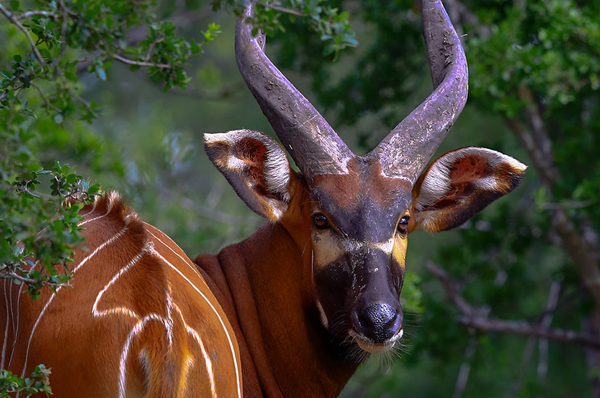 If there was no animal library for Lion King and Disney had to make them all up, the mountain bongo would be the first created.
If there was no animal library for Lion King and Disney had to make them all up, the mountain bongo would be the first created.
Larger than a deer, it’s as cuddly as a panda. Huge spherical eyes drip with love. It walks delicately through deep forests like a water thrush, its wiggly nose forever sniffing flowers. But what puts it on the ToysRUs shelf is its gorgeous thick chestnut coat with pure white stripes like icing over candy.
When I was a young safari guide, we almost always saw bongos. Today they’re all but extinct, but! The news at the moment is exceptionally good!
Seeking Backers
 Each constantly starved for attention, an American and an African leader in DAVOS today separately made news with their patently disingenuous pitches: the American Trump that he wants free trade, and Zimbabwe’s Mnangagwa that he wants free elections.
Each constantly starved for attention, an American and an African leader in DAVOS today separately made news with their patently disingenuous pitches: the American Trump that he wants free trade, and Zimbabwe’s Mnangagwa that he wants free elections.
Nobody believed either. So what’s the point?
OnSafari: Preservation
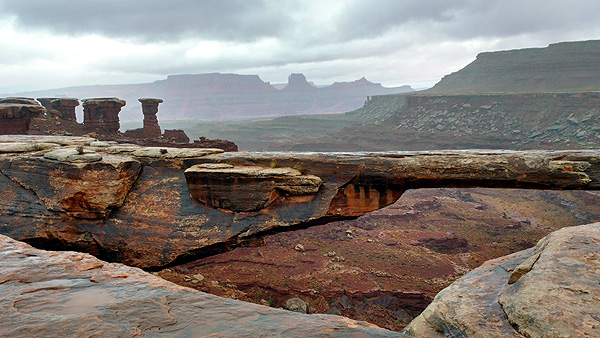 The easily accessible wild areas of the world are being overused. You hear this as often about Ngorongoro Crater as Arches or Zion. It’s a challenge to those of us who want to show people their grandeur, and it’s even more of a challenge to the conservators who want to preserve them.
The easily accessible wild areas of the world are being overused. You hear this as often about Ngorongoro Crater as Arches or Zion. It’s a challenge to those of us who want to show people their grandeur, and it’s even more of a challenge to the conservators who want to preserve them.
As an African guide I search for those less used places that prove just as grand, so that my clients don’t become discouraged. That’s exactly how Kathleen and I approached our vacation to Utah’s parks. We hired guides who knew how to avoid the crowds but still find the treasures. We weren’t disappointed!
White Blindness
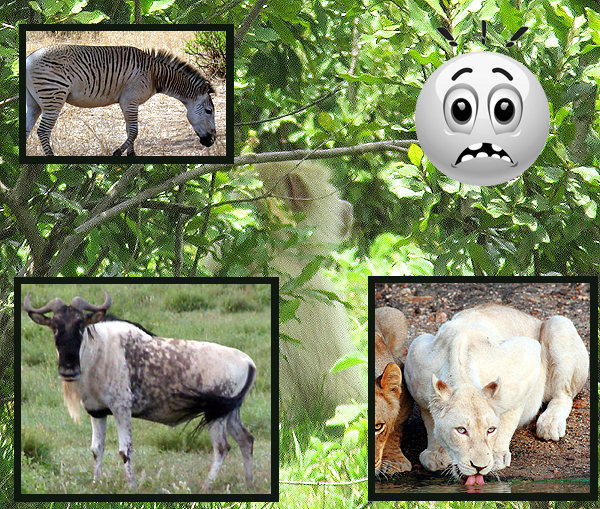 A video going viral was given leave to emerge into the public consciousness because of the news gap between Irma dissipating and Trump beginning to, again. It was of two stately white reticulated giraffe found in an unusual forest in Kenya.
A video going viral was given leave to emerge into the public consciousness because of the news gap between Irma dissipating and Trump beginning to, again. It was of two stately white reticulated giraffe found in an unusual forest in Kenya.
The excitement provoked a massive use of smiley emoji not used so often, anymore. How ironic this isn’t really good news. So sorry, folks, white animals aren’t unusual. And it’s anything but good news.